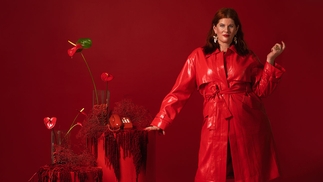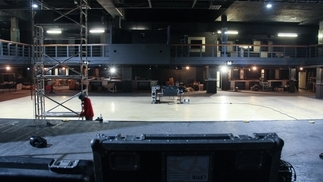EROL ALKAN: YOU CAN GO YOUR OWN WAY
He was the Electrifyin’ Mojo of the indie disco. The bootleg king. The electroclash god. But when each of those scenes imploded, Erol Alkan stepped from the wreckage unscathed...
Erol Alkan was 27 when he received his first album offer. Kylie Minogue had just performed his ‘Can’t Get Blue Monday Out of My Head’ bootleg at the BRITS. He and his club night, Trash, were getting breathless write-ups in the nationals (“He’s the man at the forefront of the recent wave of bootlegging, or ‘plunderphonics’,” gushed the Guardian in 2002, “one of the most exciting musical adventures in a decade”). Style bible The Face had even crowned him “the new Fatboy Slim”.
But when a major label came knocking at Alkan’s Tufnell Park bedsit, offering a £75,000 advance for an album aimed at exploiting the burgeoning bootleg scene, he kept the door shut. It was a prescient decision. Bootlegs quickly went from diverting experiment to laughable cliché. The Face folded. “I wouldn’t be here now if I did that kind of stuff,” Alkan says. “I was happy in my one room bedsit. I could get by.”
Alkan’s career can be mapped in a succession of hugely hyped scenes he fomented, then unshackled himself from before they hit their commercial peak and artistic nadir. He’s like a combination of canary and Cassandra, warning when a sound becomes stilted and steering the way, against the crowd, to something more vital. In the process, he’s achieved that rare feat of being, if not a contrarian, then at least willing to swim against the tide, while still garnering fanboy levels of obsession (there is, we discover during our research, a sizeable pocket of erotic fan fiction centering on Alkan and the extended Trash family).
“He’s always been that lone ranger figure,” says Daniel Avery, a former Trash club kid turned Alkan collaborator. “Erol’s only ever done stuff that’s truly excited him. It’s the only way to retain a level of vitality in your work. The second you start doing things because you think you have to, you’ve lost it.”
It’s a neat summary of Alkan’s philosophy. His shifts in sound — from a teenager playing Verve B-sides in London’s indie discos to breaking electroclash bombs like ‘Silver Screen Shower Scene’ at the decks of Trash, through the excesses of Ed Banger electro into his current take on psychedelic techno — have been driven by a refusal to settle. A nomadic itch to pack up and move when things get comfortable. “I try to encourage myself to do different things and new things. Not get bored. If I get bored, people are going to hear that. I don’t want to put out music that’s going to bore people.”
If that seems trite — and there are few producers who actively embrace dullness — it becomes less so when you consider that Alkan’s take on boring is often at odds with what his audience expects. As Avery points out, at the height of his late-’00s “noisy” period Alkan produced some of his most psychedelic remixes; his takes on Scissor Sisters and Hot Chip, and that mesmeric rework of Connan Mockasin’s ‘Forever Dolphin Love’, sit oddly against blaring remixes of Justice and Daft Punk, or his guttural electro collaborations with Boys Noize. And while those in the scene around him were engaged in an arms race of harder, dirtier, heavier, Alkan steered into deeper waters.
He peppered his sets with groovy house and wonky disco. He dragged down the tempos even as his fans railed against “Erol Alkan’s drowning beats”, a term he admits he “absolutely loved”. Now, that electro growl he veered from has all but disappeared outside EDM circles, and deep is du jour.
“He’s never done anything that’s outstayed its welcome,” says Rory Phillips, who ran Trash’s second room for seven years. “He has a very good sense of knowing when to stop. He’s always looking to the next thing to challenge himself.”
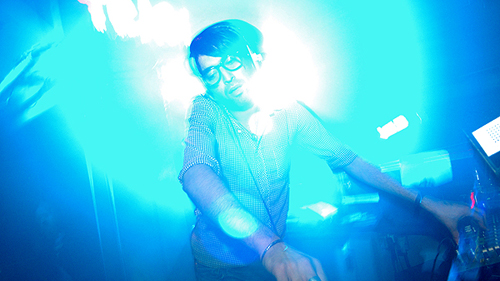
CHASING PERFECTION
We’re sat in the kitchen of Alkan’s North London home, a step up from the bedsit, just a couple of miles down the road, where he lived before Trash exploded and he became one of the most in-demand DJs on the planet. Alkan’s six foot and then some, a looming presence onstage, but in person he seems somehow slighter, less imposing. It’s perhaps because he stands slightly hunched — a legacy of 20 years leaning over decks set up for smaller DJs — and in his black-on-black jeans and hoody holed at the elbow, an almost teenage uniform, his slim frame seems even slighter.
His parents are Turkish but Alkan was born and raised in North London, and an accent lightly colours his quiet, deliberate voice. The longer we talk over cups of tea, the more he tries unsuccessfully to smother yawns. We’re speaking in the wake of a heavy finish at the Warehouse Project where he closed after the Chemical Brothers (“they’re not, you know, an easy thing to follow”) then a much-delayed, much-diverted train back from Manchester. When we part ways three hours later, Alkan’s heading up the stairs to bed almost before the door closes.
Such is the life of the touring DJ. His schedule’s been cut back recently though, after two decades of playing “at least twice a week, sometimes eight times a week”. He smiles. “Once you bring children into the world, you can’t be at Heathrow every weekend. Or you don’t want to be. I want to enjoy all this.”
There is, currently, much to enjoy. Alkan’s label, Phantasy Sound, celebrated its sixth anniversary in 2013 with two of the year’s strangest yet strongest albums — indie oddball Connan Mockasin’s ‘Caramel’, and Daniel Avery’s ‘Drone Logic’. But most excitingly, it also saw the long-awaited release of Alkan’s first solo material.
When we spoke to him 18 months ago, Alkan hinted at hard drives cluttered with his own music. But pressed on release plans, he worried that it was something “people wouldn’t expect from me”. Back then, alongside his string of entertainingly named re-workings (Erol’s ‘Durr Durr Durrr Remix’ of ‘Waters of Nazareth’, for example) he’d released a smattering of collaborations with Switch and Boys Noize, and was promising more. In fact, he promised us “a release a month until the end of the year”. No dice. Nothing, in fact, until last December’s ‘Illuminations’ EP. A trio of tracks that, frankly, sounded exactly like what you’d expect from Erol Alkan.
It’s not that they rehashed old ground. From the serial evolver, that would be unexpected indeed. Rather, when you dissected them and held individual organs up to the light, you could see their gestation in, say, the acidic tweaks of his remix for Tame Impala. In the interwoven melodies of his take on the Klaxons’ ‘Golden Skans’. Even the anthemic, slap-bass spin he gave Metronomy’s ‘The Bay’.
The trio of tracks on ‘Illuminations’ have, Alkan admits, “been knocking around for a while”. Both ‘Bang’ and ‘A Hold On Love’ started as elements from other tracks that Alkan pillaged and reworked, and ‘Check Out Your Mind’ has gone through various iterations. Later, when Alkan takes us down into the Phantasy Sound Studio, which he recently finished building in the garage at the end of his garden — a Narnia of synths hidden behind half-empty paint cans and forgotten sports equipment — he shows us works in progress that prove he’s working with an embarrassment of ideas.
Given working titles like ‘Semi-Detached House’ (“That will probably change,” he grins, and we feel a twinge of disappointment) some tracks boast Chemical Brothers synth riffs that emerge suddenly from thrusting rhythm workouts, then cross into multi-layered alt-disco that evokes the oddness of In Flagranti. Then there’s deep, throbbing techno that breaks down into rave chords over not-quite-breakbeats. Dutch electro mixed with deep house chords and acid. Each track seems to contain an EP on its own, and as Alkan flicks through the hundreds of Logic files that clutter his computer, it’s clear that his thin discography doesn’t stem from a paucity of material.
Alkan accepts that it’s partly perfectionism that’s kept his solo work hidden. “It ties you down. It can be a vicious circle. Perfection?’ he asks. “What is perfection? So earlier [last] year I definitely kind of thought to hell with perfection.” Ultimately, though, a neat coincidence gave him the nudge he needed. “There was a kind of sign there. Because the tracks all started with A, B and C. So I was like: ‘Oh right. That’s easy. ABC, 123’,” he laughs. “Sometimes you need a little thing like that going ‘Hi, it’s fine, this is it’.
“It may have just taken to this point to feel that I did have the right things that I wanted to share with people,” he continues. “I didn’t want to add to a pot of music and it be like ‘Oh, right, well here’s my bit’. And then there it is for like two weeks. Disappears. It’s very important for it to resonate in a way that I felt was right for me. I wanted to make a record that had an emotional weight to it on one hand, but also had a strangeness and obtuseness to it.”
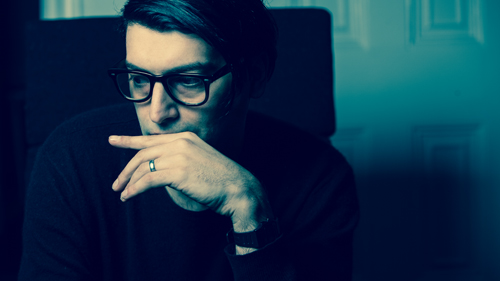
PHANTASTIC MAN
It’s largely the success of Phantasy, which has gone from a singles club to an album-releasing imprint, that has put him in a position where he not only feels comfortable putting out his own records, but also has control over how they’re released. Equally important are the artists around him on the label, who all work closely together. Alkan is executive producer on Avery’s album, which was recorded in the Phantasy Sound Studio and co-written with James Greenwood, aka Ghost Culture. Greenwood’s currently putting the finishing touches to his debut album in the same room, and Alkan’s in the same executive producer role.
Avery sees this kind of “stable” set-up as akin to labels like Factory, Creation and, more recently, DFA. “It allows the artists room to grow and develop in their own way, I think it’s very important. It’s a constant flurry of ideas between us all and I find that very exciting.”
Alkan’s been painted as a sort of mentor to this group of young producers, but Avery counters that reading. “I’ve learned a lot from him over the years,” he says, “and he’s full of great advice, but I’d imagine that he’d rather be seen as someone who can simply encourage artists. He’s very much into letting acts get to places in their own style.”
Alkan likens the studio process to cooking with someone, where roles aren’t demarcated and creativity is the sole aim. “It’s like you’d ask them ‘Can you whisk those eggs?’ or ‘I’ll go fetch a pint of milk’. You both have to be prepared to change your shape to accommodate the input of the other person. But it’s never about a defining, clear line. ‘I do this, you do that.’ Because that’s just horrible. You start off in a creative situation, then you’re outlining things, and saying: ‘Actually, if you have an idea, it might not be as good as all the ideas I have’. Which is nonsense.”
Partly this stems from Alkan’s experience helming indie bands like the Mystery Jets, Long Blondes and Late of the Pier, all of whom have recorded albums with Alkan behind the glass. As when working with dance producers, he sees his role as part collaborator, part enabler: “Understanding what this band or what this artist wants to say”. At heart Alkan’s still a frustrated indie kid who wound up making dance music — he coyly admits to having “shared some stages with some big names” as a teenager — and he takes pleasure in the fact that his guitar work has found its way onto some of the records he’s produced.
“So it’s never bothered me when people go, ‘Why’s he producing Mystery Jets? He does techno music’,” Alkan says, his voice rising. “You know what? I spent my formative teenage years in and out of bands as a guitarist. I know more about a guitar than I do an 808. It’s weird when people seem to think that I’m kind of this indie music fraud: ‘He’s got no right to mic up a guitar’. Fuck off. I’m interested in learning new things. In unlearning things. I’m interested in thinking I know how something works, then realising I’m wrong and finding a better way of doing something. All this isn’t — shouldn’t be — one big exam. You’re allowed to make mistakes.”
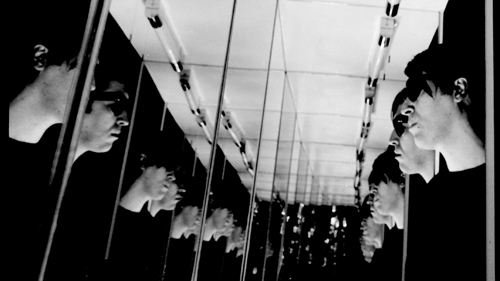
PUSH THE BUTTON
Mistakes, newness and discomfort are Alkan’s big motivators. He revels in strangeness, in discovering new things. “The thing I enjoy most about being in the studio with Erol is that it’s pure experimentation,” says Avery. “Trying out weird processes and, sometimes, something amazing will come out that you never would have achieved if you’d simply ‘followed the manual’. There’s a certain pulse, and energy that Erol creates.”
Like Brian Eno, Alkan admits that he often manufactures awkwardness to force inspiration. Like the time he grew tired of doing remixes, so only accepted records he didn’t like, revelling in the challenge of turning them into something that grabbed him. What he looks for in a record is something that “pushes his buttons”, whether good or bad. “People sometimes forget, what is the point of a track? For me, if you feel cold listening through to something, it hasn’t really done anything. It has to be — no matter what emotion it was — that it at least takes you somewhere.” It’s why he has little time for tools. For Alkan, every record has to say something distinctive.
We ask if it’s that lack of strangeness that makes him see a scene as played out. Does he grow too used to a sound, and to his ears, does what was once exciting collapse into something formulaic?
“Sort of. The language of the music changes, but it’s the fact there’s some kind of message or something in there, that kind of works for you. But it’s never been something that’s contrived. Once you’re surrounded by music that’s devoid of the quality that you desire from it, you feel like you’re at a party with a load of strangers you can’t really get on with. If you just want to stay at the party then fine, it might actually be good. But most of the time it’s my cue to leave.” His musing is suddenly punctured by laughter. “God, that’s such a crass thing to say.”
Our interview’s riddled with these moments of self-editing. Alkan’s speech is at times ponderous, racked with pauses as he searches for the precise phrase, and occasionally he’ll double back to clarify something he said. When he’s telling stories the gaps evaporate and he’s fluid and funny, in a self-deprecating way. There’s the time the Long Blondes’ Kate Jackson couldn’t nail a vocal, “So I asked, ‘The character in the song, where is she?’ ‘She’d have got out of a taxi and she’d be outside, and kind of had a couple of drinks.’ ‘Ok, fine.
That’s what it’ll be.’” So Alkan poured a bottle of brandy down Jackson’s neck, and pitched her into the alley outside the studio where he’d set up a mic. “Went up, nailed it in two takes,” he says, taking a victory sip of his tea. Or there’s the time the bootleg of Dr Dre and Sugababes he’d knocked together on a Monday afternoon to play at Trash found its way onto the XFM A-list for six weeks. “All from a little accident.” He sighs. “I wish I could do that again now...”
It’s when we dig into more conceptual areas that he slows. It’s clearly not that he’s considering the ideas for the first time. Rather, he seems concerned with ensuring he’s properly understood. He’s not, he confesses, a fan of interviews. Alkan may be approaching his fifth decade, but there’s still something teenage about him. His beard is flecked with grey, but the way he plays with it and he fidgets under questioning — at one point he draws his feet under him in his chair, his six-foot frame curled like a comma — is a little like a sixth former being quizzed by a great aunt. Not that he isn’t witty, erudite and forthcoming. We just get the sense he’d rather be doing something else.
And when we head down the garden to his studio, it becomes clear what. Once the speakers start humming Alkan’s like a kid eager to show off his toys. This is the bit he enjoys. Not talking about the music, not dissecting or analysing the music. Sharing it. Giving it to others and seeing how they react. That’s why each time he finds himself at that party where the music’s become a stranger, he wants people to follow him somewhere new. Somewhere exciting.
For Phillips, it’s what makes him such a good DJ, a talent he honed week-in, week-out, playing alien records to kids at Trash. “He’s very good at reading a crowd. He’ll know exactly what to do. But at the same time, while still staying true and not dumbing himself down. He’s very tuned in.” It was where he learnt to trust in his judgment, even when a record like ‘Silver Screen Shower Scene’ cleared the floor. At least, it did the first time he dropped it that night.
“If you play something and think it’s brilliant and people are nonchalant about it, if you believe in it then you’ve got to see it through,” he says. “I’ve always believed that clearing a dancefloor isn’t negative. Isn’t a bad thing. You clear a dancefloor by playing something you don’t really care about, then maybe you need to rethink why you’re playing what you’re playing. But if you believe in something? I’d have no problem putting out a record and no one else got it, it sold five copies or whatever. As long as I believe in that record, that’s fine.”
His own role, as he sees it, is to connect with people through music. To inspire a reaction, good or bad, and create a connection. It’s the through-line of his career, from the first mixes he fashioned for school friends, and then into DJing. “It was like making a tape for all my friends at one given time. That’s how I’ve always tried to look at it.”
It’s why, for each string he adds to his bow, playing records in dark rooms remains so important to him. And why he looks at the way dance culture’s heading with dismay. “DJing has become a career option, there’s a lot of smoke and mirrors to it. You can crowd please for 90 minutes and people will be happy. But is that what DJing is? If your answer to that is yes, then fine. There’s lots of that. But there’s also DJs who feel that DJing is a far more transcendental experience. Or it can be.”
On New Year’s Eve, we see him play alongside Avery in London for Broken and Uneven. It’s a set where most DJs tend to deploy the bangers; two hours of guaranteed rabble-rousers, grab the cheque and scarper. But an Erol Alkan New Year’s set doesn’t follow the formula. Instead he dips into rough, body-rocking percussion jams and rippling acid, with his own records appearing occasionally to huge response.
“These parties are always about celebrating the past,” he says when we catch up with him after his set. His hair’s slicked back by the sweat that’s also beading the walls, and we’ve had to peel him away from the lighting board, where he’s taken over duties as Avery takes things towards tunnel techno five feet away. Fans clamour for photographs with their hero, and he smiles at us. “But why not celebrate the future?”
Why not indeed?
Words: Tom Banham
